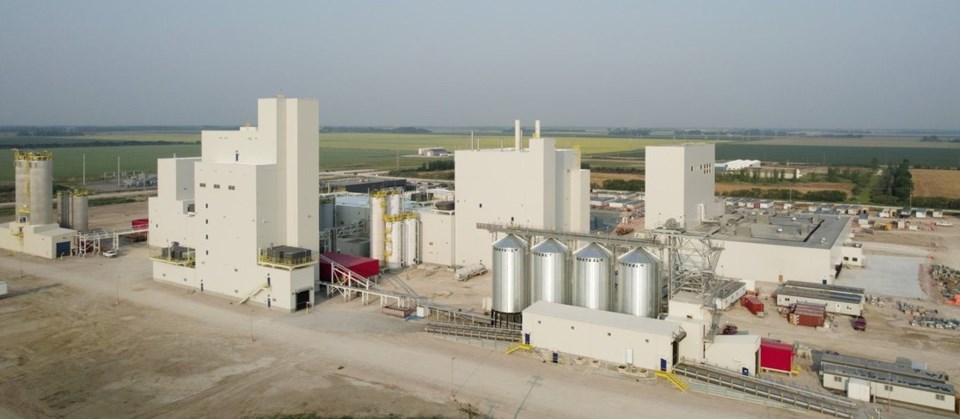The “Plant for the Future” was established by Roquette to meet the rising demand for alternative proteins across the world, said the company’s CEO, Pierre Courduroux.
“We see this as a transformational event in our history and a boost to the global plant-based food sector,” Courduroux said. “Diets have changed considerably in recent years, and the desire for alternative proteins continues to grow. Our company is proud to bring this amazing new facility online to serve demand in North America and around the world.”
A virtual grand opening and press conference was held Wednesday to celebrate the opening of the plant. The event included information about pea protein, cooking tips using the plant, and appearances from Canadian astronaut Chris Hadfield, Courduroux, Roquette senior vice-president Jeremy Burks and Roquette’s Canadian managing director, Dominique Baumann.
Roquette has worked closely with food leaders to develop new products that aid in the development of new plant-based cuisine, Courduroux said, and these steps are creating more sustainable food for a healthier planet.
Demand for pea protein has been growing — multiple industry estimates expect an annual global growth rate between 15 and 24 per cent over the next decade.
He added with the establishment of the plant in Portage la Prairie, Roquette is the only company with major pea protein facilities on both sides of the Atlantic, which will aid in its ability to meet expanding consumer demands.
Portage la Prairie was chosen as the site for the plant because the region produces the most peas in the world, the city is close to Winnipeg and has easy access to the United States — shortening supply chains and securing access to a high-quality product.
“It really positions us as a true leader in this plant protein market to have that presence on both sides of the ocean,” Courduroux said. “This is going to be a fantastic tool for Roquette to continue building this future with our customers and partners.”
The 200,000-square-foot plant in Portage can process 125,000 tons of yellow peas per year. When combined with Roquette’s plant in France, the company’s capacity now rises to 250,000 tons of peas per year.
With this new facility, Roquette has largely exceeded its $713-million (500 million euro) investment in plant proteins it had targeted in the 2015-2020 period.
The plant sits on 60 acres in Portage, and the facility is looking to expand in regards to future production on an available 200 acres they have purchased.
It will have a full staff of 120 — 114 positions have already been filled.
“It’s a great feeling for us. It’s been a long journey. It’s not necessarily been easy all the way, but I’m so proud when I look at the achievement of the Roquette team,” Courduroux said.
He added it has been a challenge scaling up production at the company, given the grand opening and construction of the plant took place during COVID-19.
Burks said they were able to learn from their operations in China and Europe and quickly adapt protocols to ensure the safety of workers.
The opening of the plant marked an important milestone for the company and the industry. He said Roquette is acting as a pioneer in the Westman area and will help grow the industry as a whole working as a leader and partner with farmers.
Burks said it has been a challenge expanding the use of peas, especially because there has been a marked effort at the company to ensure nothing goes to waste.
He added the pea processer is always exploring proteins to work with and regularly deals with peas, wheat and wheat proteins.
The focus at the Portage plant will be peas.
“Peas provide a tremendously versatile protein with many different applications, so that’s going to keep us pretty busy in the short term,” Burks said.
Global demand for the plant protein is expected to grow, he added, describing it as a “fast-moving target.”
The growth is expected to be sustainable for the future, and the Portage plant will aid Roquette in meeting consumer needs. The main market for the protein coming out of the Portage plant is human nutrition, but he did not rule out expanding into pet and animal feed.
Roquette is working across the supply chain and is looking to source a variety of peas for its plant, Burks said.
The company has a farm where different varieties of peas are grown so they can better understand their performance in a variety of conditions. This is also done for other crops.
“We work in close collaboration with the farmers ... and give them what we’ve learned with our own experience,” Burks said. “This has to be a good deal for everybody, and we believe that by helping on the production side of our raw material, the growth of the pea, that we can make some progress there for the benefit of the growers.”

